Fishing for a sustainable future in Lebanon
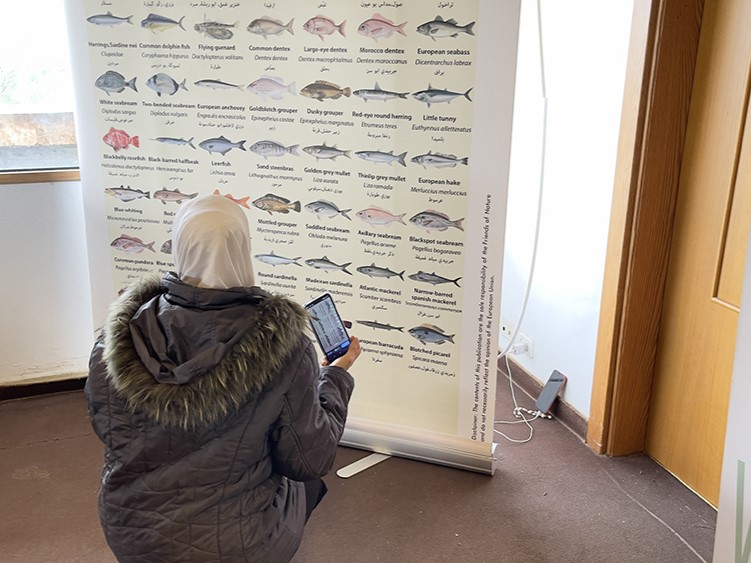
Trainee at lecture session interested in learning fish species of Lebanon. Credit - Friends of Nature.
Marine preservation & coastal poor livelihood betterment through sustainable fishing
Lebanon has suffered since the pandemic. The economic/financial crisis was one of the most severe and depleting in Lebanon’s history. It condemned over 80% of the population to poverty and forced large parts of business and production sectors to closure. The Friends of Nature NGO took the initiative to support the poor coastal communities through presenting a sustainable source of decent livelihood stemming from available resources. Seas are recognised to provide a free source of good nourishment for minimum initial investment. Historically, marine riches prompted the settlement of people along coasts. With a coastline of 220 km on the Mediterranean Sea, Lebanon’s marine resources have the potential to be managed to support coastal communities sustainably. Our project is centered on reversing the exploitative trend of fishing in Lebanon by creating a new model of adopting sustainable fishing for livelihoods, whilst supporting biodiversity conservation.
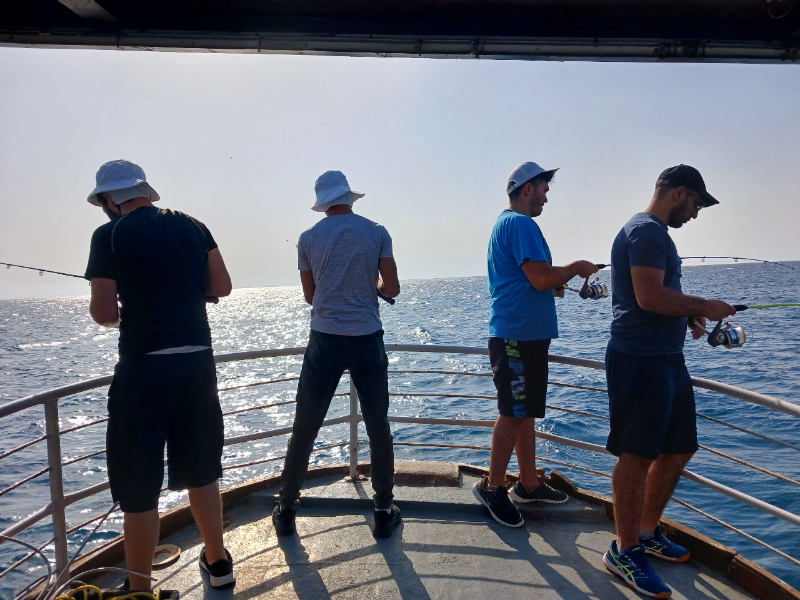
Friends of Nature pioneered the first vocational course for sustainable fishing, which in itself was a challenge since the marine environment is not locally recognised for job or skill development. The course provides a comprehensive understanding of the marine ecosystem and productivity, in addition to a practical element focused on proper techniques of fishing which respects all laws and rules of sustainability.
Community engagement was another difficult task to accomplish. The challenge was to convince the public that the course was worth the time and commitment. In crises situations, people grow reluctant, insecure, and lose confidence in their abilities and in the potential for change. It took devoted effort with strong communication and social skills, amical promotion of the potential of this approach, and consistent perseverance and follow up from our team, especially the community engagement officer, to bond with communities.
We experienced a very important learning. When approaching a community, we contacted a range of entities, such as municipality or mayor, local NGOs, or prominent figures, with varying success. We continued our screening until we found in each community that pivotal champion, who would truly join hands and make us succeed at reaching out to the community. These community mobilisers were mostly females and they were critical at encouraging the community to register for the free vocational course; they expressed innate abilities to advocate and mobilise with such seriousness, passion, and level of commitment that amazed us. They are not necessarily in leadership or decision-making positions, and it is not their job. But their drive, social belonging, and devotion led them to carry out the task wholeheartedly in the hope of supporting the development and improvement of their communities. Through these community mobilisers, who we thank tremendously, we reached the youth and target group. Finally, 300 members from over 15 coastal communities received capacity building training. More than 50% of trainees were females, contrary to the general social perception that females are not players in marine activities.
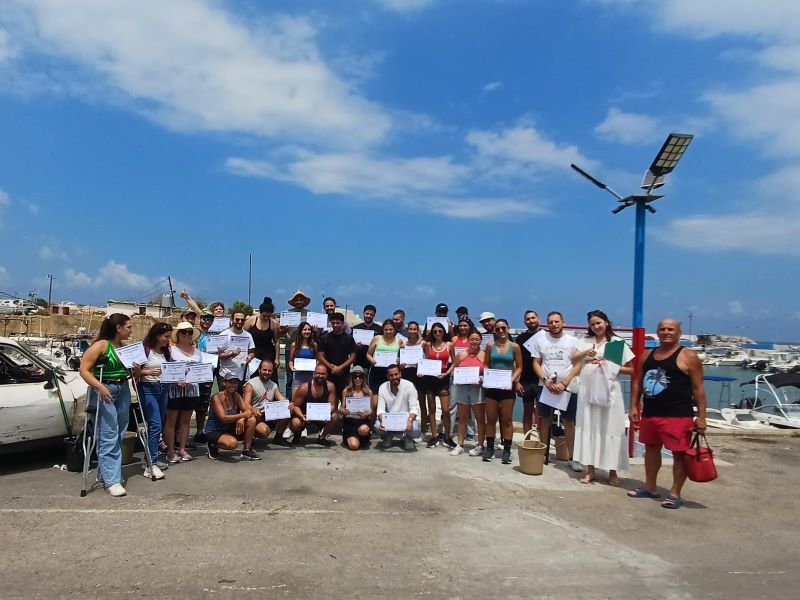
The course was designed to be highly informative in an appealing and attractive manner so community participants would fully engage on intensive learning over two successive days of lecturing workshops. The feedback of trainees was rewarding. In their words, they never realised the sea to be as rich and extensive in its processes, nor the marine beings to be as complex.
On the practical element, capacity building included a training day of fishing at sea and another on-shore. The gained experiences were transformative and provided new horizons. Some of the trainees had never been on a boat; most of the trainees had never visited the city we sailed from; some may not have ever fished or held live fish before. The engagement from participants was clear.
Next was networking. Our aim was to create in every community a nucleus of trainees, who were sufficiently skilled and enabled to provide training in their communities and engage other youth. We wanted them to be the new citizen examples for sustainable fishing and to return information on their fishing sites and activities, as well as, on marine biodiversity particularly the endangered species. Through this network, we are receiving immense amounts of feedback on the WhatsApp community groups.
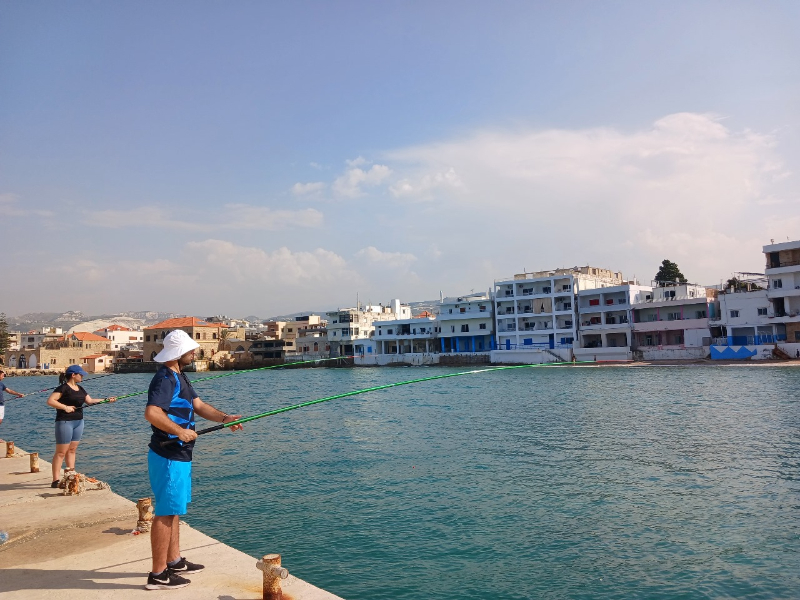
Fishing versus conservation. Fishers generally perceive conservation as impeding and limiting, rendering fishing grounds inaccessible. In this project, we instilled a new mindset and behaviour that we hope to propagate through our beneficiaries. We adopted the slogan “Marine Protected Areas are the friends of the fishermen”. Our beneficiaries perfectly comprehend the value of the Marine Protected Areas and their role in enhancing biodiversity, marine productivity, and the fish stock for the benefit of the sea and the fishermen themselves.
After the first year of our two-year project, we realise that we did not only provide knowledge and improve capacity to establishing independent sustainable livelihood, what we never accounted for was that we brought hope. A hope that would ease the suffering and despair inflicted by the post-pandemic crises. Our trainees never believed that someone would truly take them by the hand and offer them a new life or a way of living; they never believed they would be involved or approached or considered for anything. They also never believed that they would be capable. By the end of the course, they were proud of themselves and their achievements.
In the second year of our project, we will channel capacity building to newly established Marine Protected Areas to strengthen their management for better protection of biodiversity. Stay tuned for dazzling marine stories.
Written by Dr. Myrna Semaan. For more information on this Darwin Initiative C&C project DARCC033, led by Friends of Nature, please click here.
 Back
Back